Canadian Opposition Leader Calls For Crackdown On Iran’s Agents
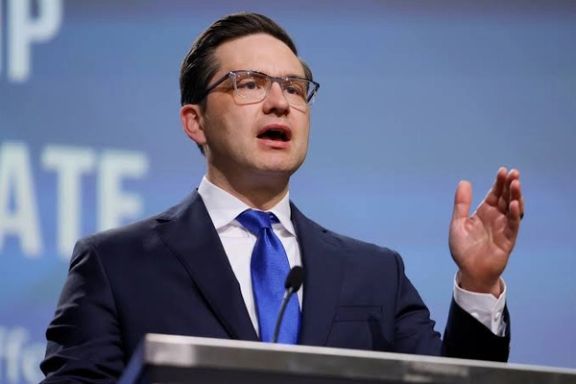
The Canadian opposition leader has called for immediate action against the Iranian regime, following revelations detailing its interference in Canada.

The Canadian opposition leader has called for immediate action against the Iranian regime, following revelations detailing its interference in Canada.
The report released by the Canadian outlet Global News focused on the ongoing threat against Iranian dissidents given the number of regime insiders operating in Canada.
Pierre Poilievre called the immense scope of the problem “shocking” and the number of agents mentioned in the report, which is approximately 700, “staggering”.
“To think that we might have terrorist-linked Iranian regime thugs operating with impunity, spending stolen money and intimidating Canadian Jews and Iranians is appalling,” he told Global News. The situation necessitates “immediate action to kick them out of this country,” the prime ministerial candidate added.
The Conservative leader had already pledged that his administration would list Iran's Islamic Revolutionary Guard Corps (IRGC) as a terrorist organization in Canada if elected, along with the US which took the move in 2019.
Among the non-governing parties in the House of Commons, Pierre Poilievre's Official Opposition Party has the most seats. Polls and projections indicate that the Conservative party will lead the upcoming federal election, for the 45th Canadian Parliament, scheduled for October 20, 2025.
Currently, Canada has expanded targeted sanctions against some IRGC members and amended its Magnitsky legislation in order to allow it to go after individuals accused of human rights abuses and corruption, but the opposition says that these measures do not suffice.
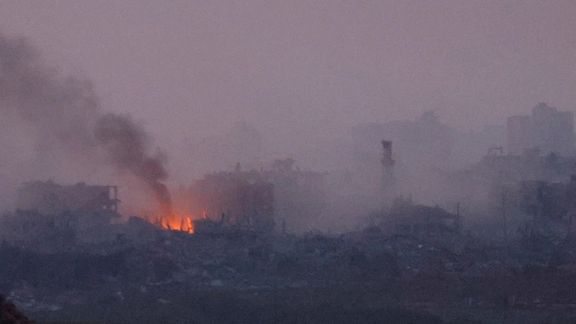
An ultraconservative lawmaker in Iran has initiated an impeachment against the foreign minister citing inaction by the diplomatic service before the Saudi authorities.
In a document disclosed by Tehran's Jamaran news website, Mahmoud Abbaszadeh-Meshkini criticized the "weakness in playing a central and effective role" in addressing the Gaza conflict. He expressed the expectation that Iran’s Foreign Ministry, being the "most powerful country in the resistance axis," should have convened an urgent meeting with members of the Organization of the Islamic Cooperation (OIC) in Tehran.
Taking issue with the performance of Foreign Minister Hossein Amir-Abdollahian, Meshkini, who sits on the Parliament’s National Security and Foreign Policy Committee, asked: "How is it that until recently, the goal was to eliminate the Zionist regime, but now the discourse has shifted."
It appears that he is referring to the fact that Iran has recently twice accepted the two-state solution.
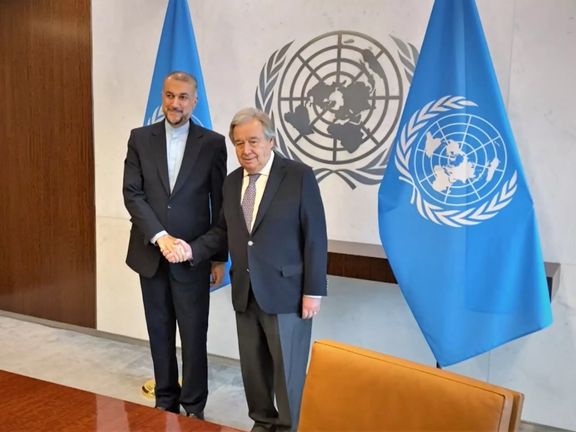
As part of the two-state solution to the Israeli-Palestinian conflict, Palestine would be an independent state alongside Israel. There are still disputes over the border between the two states, and the Palestinian and Arab leaderships are demanding that Israel withdraw from territories it occupied in 1967, which is rejected by Israel.
Iran's public position, however, has always been to annihilate Israel as a state, rejecting a two-state agreement.
On October 27, the UN General Assembly approved a resolution calling for a "humanitarian truce" in Gaza. Back then, Iranian hardliner outlets attempted to justify Iran's vote in favor of that resolution, which also advocated a two-state solution.
“Did Iran vote for the two-state solution? Although some have expressed doubts regarding Iran's position towards Palestine and the formation of an independent Palestinian state following the recent resolution of the General Assembly, Iran's position remains strong,” Fars News wrote last week.
The paper then cited the Permanent Representative of Iran to the United Nations as saying that if they hadn’t voted, it would have been “playing into the hands of the Zionist regime”.
“The Arab League presented this resolution to the United Nations General Assembly, but it was never discussed,” he explained according to Fars News.
More recently, in a summit of Islamic and Arab states in Riyadh, in which Iranian President Ebrahim Raisi also participated, a statement was released that also referred to the two-state solution.
Iran’s Foreign Ministry spokesman Nasser Kanaani said Tehran had always expressed “reservations” in the past about some of the provisions approved during the Riyadh summit.
Hardliners in the regime still call for the destruction of Israel and claim they are eager to go and fight in Gaza, while the top leadership has been cautious so far, avoiding any direct involvement.
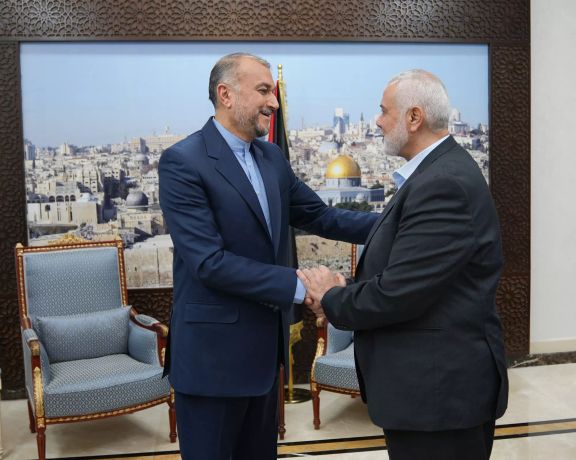
Referring to the war in Gaza, General Mohammad-Reza Naghdi, a deputy commander of the Islamic Revolution Guard Corps, IRGC, said on Tuesday that while it’s true they have not sent any troops to Gaza, but that does not imply that nothing is being done.
“We eagerly await the order to deploy to Gaza,” he said rhetorically.
As more of a symbolic gesture, 150 members of the parliament have volunteered for deployment to Gaza, and the regime claims to have registered 6 million volunteers ready to join the war in Gaza.
The move to impeach Amir-Abdollahian resembles another attempt at posturing by hardliners.
With the next parliamentary election around the corner, this could also be a sign that hardliners such as Meshkini, who is sanctioned by the EU and UK, are appealing to extremists for their votes.
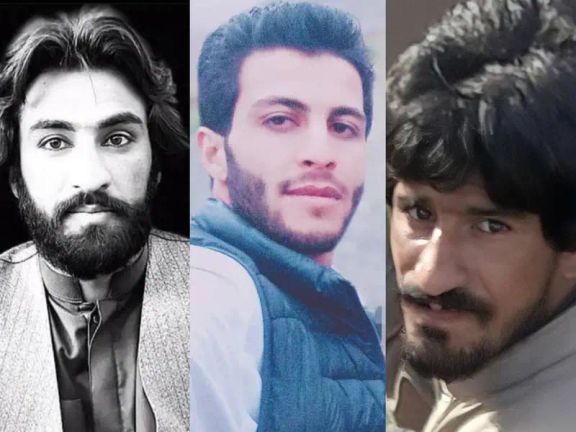
Three political prisoners were executed on Tuesday at Zahedan prison in Iran’s southeastern Sistan-Baluchistan province, which has a majority Sunni population.
Mizan News Agency affiliated with Iran’s notorious Judiciary made the announcement, as it has executed more than 100 inmates in the past one month.
The condemned political prisoners were charged with alleged "membership and collaboration with Jaish ul-Adl, receiving military training, transporting and concealing bomb-making materials, as well as participating in two bombing operations in Zahedan, an unsuccessful bombing in Zabol county, and two bombing operations in Zahedan's police station."
Jaish ul-Adl, a Sunni Islamist armed group, operates predominantly in southeastern Iran, where a significant Sunni Baluchi population resides, and the border with Pakistan is porous.
The detainees, apprehended by security forces in September 2020, underwent months of interrogation before being transferred to Zahedan prison.
Last Saturday, another political prisoner was also executed after enduring 12 years of imprisonment in the same facility.
Jaish ul-Adl promptly responded to the executions, characterizing them as "a sign of the weakness and incompetence of the regime of the Supreme Leader in confronting the movement of the people of Baluchestan for the realization of their legitimate rights," as stated on its Telegram channel and website.
In a parallel development, the Oslo-based Human Rights Organization of Iran released a report on Tuesday, documenting 114 executions in the country since the commencement of the conflict in Gaza. Of these, 24 were Baluch citizens, five of whom were sentenced to death for collaborating with armed groups opposing the Islamic Republic.
The 2022 execution statistics for Iran reveal that the Sistan-Baluchestan holds the highest per capita execution rate in the country, with 39 executions per one million people.
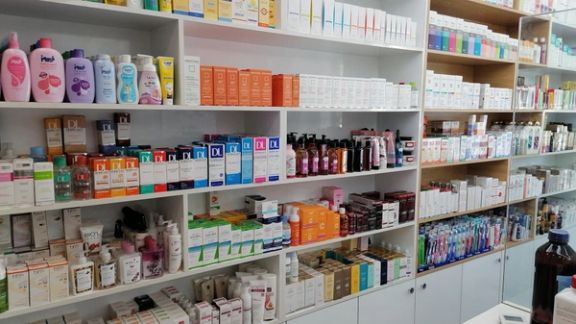
The Food and Drug Organization of Iran has reported a shortage of approximately 100 types of essential drugs within the country.
Mohammad Peikanpour, the Director-General of Drugs and Controlled Substances, highlighted the severity of the situation, noting that certain medications are in short supply due to a lack of specific currency allocations.
Peikanpour further addressed the life-threatening challenges in the availability of plasma-derived drugs, including albumin, which comes amidst already dire nursing and doctor shortages.
Mazyar Nourbakhsh, the head of the Commission for Transformation, Innovation, and Productivity at the Tehran Chamber of Commerce, shed light on the currency allocation dilemma in an interview with ILNA News Agency on Tuesday, stating, "If the delay in currency allocation and the clearance issues persist, goods will expire, leading to a loss of functionality."
The pharmaceutical industry in Iran, heavily dependent on the government for hard currency to import raw materials, is grappling with the impact of the shortages. Production of essential medicines has been disrupted, causing widespread concern among pharmaceutical companies. Local media reports indicate that various common medicines and drugs crucial for hospitals are now scarce or entirely unavailable.
The economic challenges faced by Iran, exacerbated by US oil sanctions, have strained the government's ability to allocate foreign currencies. Despite an increase in oil exports in recent months, reaching nearly six times the 2019 levels at approximately 1.5 million barrels per day, the Iranian rial is near an all-time low.
With inflation soaring above 60 percent, the country is facing a complex economic situation that is directly affecting the healthcare sector and the well-being of its citizens.
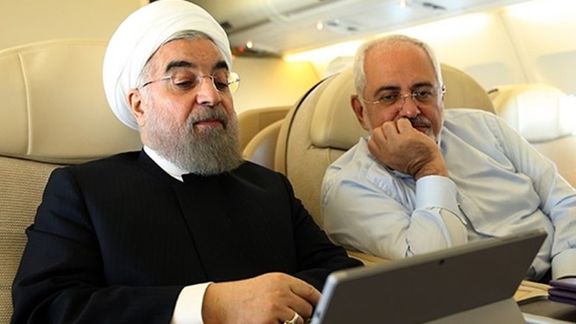
Some Iranian hardliners have been advocating for involvement in the Gaza war despite warnings from Israel, the United States and senior politicians in Tehran.
Former Foreign Minister Javad Zarif told centrist news website Entekhab that "opposition to national interests is in the nature of some of Iran's hardliners." He had disclosed earlier that hardliners sent letters to Khamenei to encourage him to intervene in the Gaza war.
Zarif said on social media that "In several interviews over the past week, I tried to explain Israel's warmongering objectives and its inhumane treatment of Palestinians over the past 70 years. Unfortunately, some of my statements were fragmented before publication and then used selectively. At times, hardliners used my statements to further their own political game."
Last week, it was reformist journalist Sara Massoumi who first reported Zarif's speech during a meeting with reformist politicians in Tehran. Massoumi quoted Zarif as having said: "If Iran is dragged into the Israel-Gaza war, nothing is going to happen to any of Iran's state officials! The bombs are going to fall on the people."
Elsewhere in the speech Zarif asked: "So far who has suffered from the sanctions? Those who make several millions of dollars, or the poor people?"
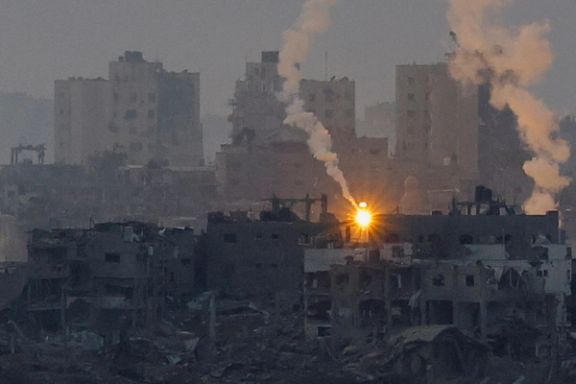
Zarif posted a video of his statement on YouTube and X, and called on viewers to see for themselves that those who accuse him of not having any concern for Palestinians were wrong or biased in their judgement. He also reiterated his call for Islamic and national solidarity in support of Palestinians.
Nonetheless, his critics continued to attack him on social media. "Congratulations Mr. Zarif! Your video clip is being used by Israeli and European channels with the caption 'Former Iranian Foreign Minister says Gaza has nothing to do with Iran.' Once again you backstabbed Iran among the Resistance groups and countries."
Zarif, in return, told Entekhab that the accusations were part of a factional polarization attempt to poison the mood in the society." Zarif had said in an earlier interview on Telegram that "Israel dreams of getting Iran and the Lebanese Hezbollah involved in the Gaza war.”
In another statement, Zarif accused Iranian hardliners of boosting Iranophobia and Islamophobia in the world with their behavior. He added that Iran has been eliminated from the international scene as many big powers do not like to engage with Tehran. He added that none of the powerful world players, particularly Russia want Iran to be able to play any part on international scene.
He further referred to the controversy about the use of Iranian drones in Russia's war against Ukraine and accused Russia of letting down Iran by getting the drones from Tehran and then disclosing Iran’s involvement in the war.
Last week, former President Hassan Rouhani had also warned against Iran becoming involved in the Israel-Hamas war in Gaza. Rouhani addressed the ongoing conflict in Gaza, warning that regime’s role in flaming the conflict was putting Iran at risk. He emphasized the potential consequences of its direct, or indirect involvement through proxies, warning that "a mistake, a wrong decision, or an imprecise action could drag the flames of war towards us."
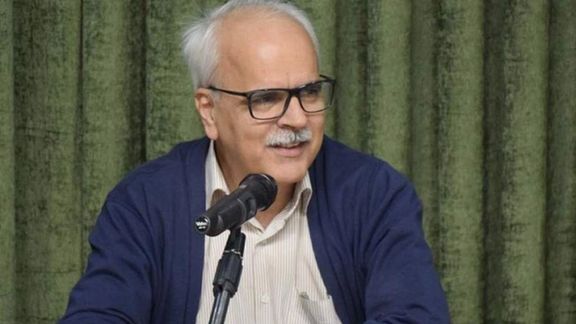
Saeed Madani, a jailed Iranian sociologist, has issued a statement from Evin Prison emphasizing the political opportunity for civil resistance in the upcoming parliamentary elections.
While the election Scheduled for March 1, Madani highlighted the chance to capitalize on the momentum of the 2022 uprising which has called for a nationwide shift away from the regime.
In February, Mousavi, from his confinement, called for the preparation of a new constitution to save Iran. Mousavi outlined the core principles of the new constitution within the framework of the Women, Life, Freedom movement.
Madani was sentenced to nine years in prison in January on charges of "forming and managing dissident groups against the system" and "propaganda against the Islamic Republic."
He called for international standards for the elections, expressing that “those advocating for change would support boycotting the elections if these standards are not met.”
Referring to the stance of Mir Hossein Mousavi, a leader of the Green Movement who opposes symbolic elections and advocates for a boycott, Madani asserted, "It is time for reformists to prioritize justice and truth."
The statement by the imprisoned researcher and national-religious political activist coincides with reports of widespread disqualifications of lawmakers critical of President Ebrahim Raisi's government. As of Sunday, approximately 40 current members of parliament and several former lawmakers or top officials were barred by the interior ministry from running in the elections.
The mass disqualifications have raised concerns among regime insiders about the potential for low voter turnout in the upcoming parliamentary elections.